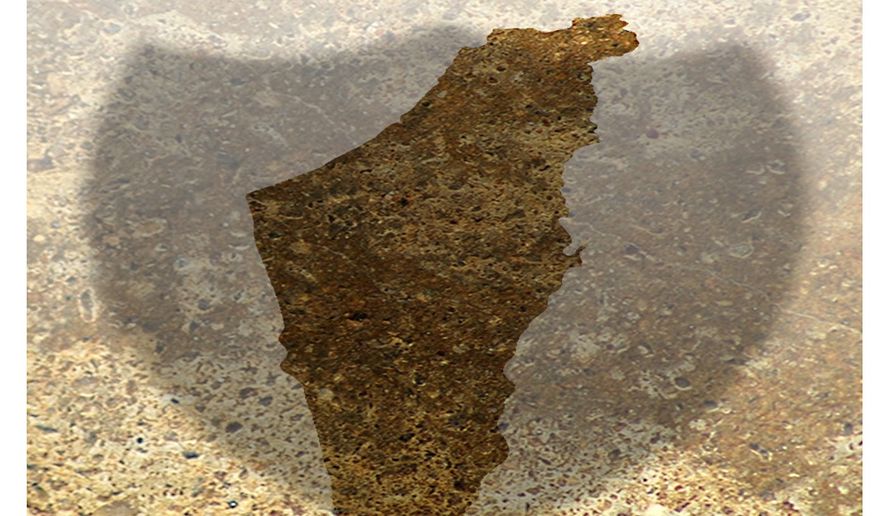OPINION:
With Russia poised to invade Ukraine, China ramping up aggression in the South China Sea and Iran inching closer toward the nuclear bomb, terrorist rocket attacks on Israel are no longer front-page news. That doesn’t mean they’ve stopped.
What has stopped, at least for now, is congressional action to pass funding to replenish the Iron Dome, a missile defense system co-developed with the United States that intercepts rockets fired at Israel’s populated areas.
Last September, the House of Representatives — despite pushback from House progressives — passed a bill that would provide the needed funds. Yet believe it or not, four months later, the Senate has yet to take up this legislation, and Israel’s stock of Iron Dome interceptors still needs replenishment.
Since the Iron Dome was first deployed to Israel in 2011, it has a played critical role in protecting Israeli citizens from the persistent rocket attacks launched over the years by Hamas, a Palestinian terrorist organization.
Indeed, during the latest round of fighting in May 2021, terrorists in Gaza indiscriminately fired over 4,400 rockets at Israel. With greater range than ever before, some of these rockets flew toward some of Israel’s most densely populated areas, including Tel Aviv and Jerusalem. The rockets were also fired in greater numbers than ever before. The total number of rockets launched in this 11-day conflict equaled the number fired during the 50 days of fighting that took place in 2014.
Iron Dome intercepted over 90% of the rockets that were going to hit populated areas — 1,477 in total. This not only saved countless Israeli lives, although 12 civilians were still killed, but also those of Palestinian civilians.
The protection provided by Iron Dome gave Israeli military leaders time to respond to Hamas’ attacks with carefully targeted and precise airstrikes that involved complex procedures — including advance notice texts and phone calls — to mitigate risks to Gazan civilians. Without Iron Dome, Israel would have been forced to launch a ground offensive to shut down the rocket fire more rapidly, as it has done in the past. Such an offensive would have surely caused greater destruction.
In addition to saving thousands of lives when deterrence fails, missile defense systems such as the Iron Dome contribute to deterring attack in the first place. Faced with the obstacle of missile defense, actors might think twice before pushing the launch button if they become convinced their attack will fail — or that the costs of overcoming missile defense systems would outweigh the benefits of success.
Crucially, Iron Dome’s capability to protect Israel is a part of its deterrence, and defense, against a much greater threat than Hamas. Indeed, Hezbollah, the Iranian-backed Lebanese terrorist group to Israel’s north, has amassed over 130,000 rockets.
It is to afford Israel this protection, and help reduce the destruction caused by regional conflicts, that then-President Barack Obama asked Congress to help fund the development of Iron Dome. Israel already invests almost 6% of its GDP into defense, but Congress has provided additional support, given the uniquely threatening environment it must protect against.
To ensure the continuity of that protection, President Biden pledged to replenish the interceptor missiles that Israel used up during the May conflict. To extend that protection to other regional U.S. partners, Sen. Jack Reed, Rhode Island Democrat, recently suggested providing the United Arab Emirates with Iron Dome to defend against ongoing drone and rocket attacks from the Houthi terrorists in Yemen.
Now, as Israel waits on Congress to act, the protection afforded by Iron Dome has been diminished and malign actors may not be so deterred from launching new attacks. Indeed, if Hamas or other Iranian proxies believe the efficacy of Iron Dome is compromised, they may see an advantage in trying to overwhelm the system, which would dramatically jeopardize the lives of Israeli and Palestinian civilians.
Before it’s too late, Congress should act to restock the interceptors for Iron Dome to ensure Israel has this vital tool at its disposal to combat the ongoing threats it faces on a daily basis.
Congress is divided on many issues for which it will need to find legislative solutions. Funding Iron Dome, a system that saves countless Israeli lives, should not be one of them.
• Blaise Misztal is the vice president for policy at the Jewish Institute for National Security of America. Patty-Jane Geller is a policy analyst specializing in nuclear deterrence and missile defense at The Heritage Foundation’s Center for National Defense.




Please read our comment policy before commenting.